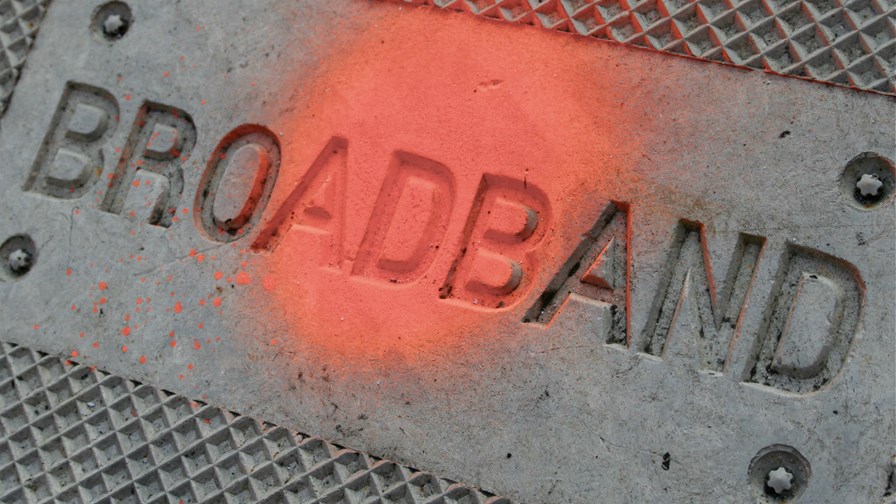
via Flickr © Gavin St. Ours (CC BY 2.0)
- So says newly demoted Business and Enterprise minister
- But the government has a get-out clause ...
- It got the figures from BT
Less than a month ago Anna Soubry the MP for Broxtowe in Nottinghamshire, was in the Cabinet member of the administration of the then Prime Minister, David Cameron. She was Minister for Small Business, Industry and Enterprise and a very prominent member of group of Conservative politicians who campaigned for the UK to remain a member of the European Union. That campaign failed and when Cameron's unelected successor as PM, Theresa May, took over Ms. Soubry was summarily sacked and returned to the back-benches as an ordinary, and, to all practical intents, powerless back-bench MP.
However, Ms. Soubry, who was a journalist before she became a politician, has a reputation and parliamentary record as an outspoken minister who didn't always slavishly toe the party line. Now she is much more free to express her views and she has some very interesting, and trenchant, things to say about Britain's much-vaunted "superfast broadband - or the lack of it.
Drawing on experience gained during her time as small business minister and her knowledge of the state of domestic broadband access in her constituency, Anna Soubry says government figures on the availability and speed of broadband access are flawed and meaningless. Journalists and users are already well aware of that but it is refreshing to hear the it from a government politician, even if she did have to get the push from her perk-padded ministerial post before she decided to tell what she knows.
Taking informed issue with government statistics claiming that nine out of ten UK homes have access to "superfast" broadband, the MP says they are partial and based on figures where "hundreds of thousands of households" were simply left out of the calculations. And who supplied the data that was used in the government figures? Why it was none other than the UK's wonderful says incumbent telco, BT. Thus, Ms. Soubry claims, the blame for the miserable Internet access speeds that still pertain across swathes of Britain can be laid directly at BT's doorstep. Like many another of BT's disgruntled subscribers and competitors, she says enough is enough and is calling for the telco to be split up.
Anna Soubry said that whilst she was a minister she asked her officials to examine the ‘nine out of ten’ claims because, after hearing real-life tales of pathetic bandwidth availability from small businesses and ordinary users, she simply did not believe the statistic. She said, "It looks like a good headline, but when you dig down and listen to people in the real world you get incredibly suspicious that it’s a meaningless statistic. The vibes I’m getting back from the real world are that this is not accurate. I don’t trust these figures at all."
She added,"Diving into those figures and revealing them, which I was in the process of doing before I left Government, I think you will find will show that those figures are flawed." Then, rubbing salt into the wound, she claimed that BT's broadband roll-out and service has been "nightmarish" and supports the increasing demand that so-called 'superfast' broadband be regarded by the government as the "fourth utility" alongside the provision of water, gas and electricity.
Other MPs, echoing the increasingly vociferous complaints of campaigners, the public and the incumbent telco's rivals who say that BT, through continuing failure to invest properly in fast broadband technology whilst spending tens of millions of pounds on doing deals to provide coverage of football matches and other sporting content to be sold at premium prices to subscribers who do have good bandwidth, has failed to provide meaningful Internet access to some six million of the citizens of the UK who still have to make do with sub-standard broadband connections.
A spokesperson for the Department for Culture, Media and Sport, presumably wearing an "Under New Management" placard around his or her neck, said that the government department "robustly audits" the UK's broadband speeds. However,the mouthpiece failed to mention that it then files away the results and does nothing further with them.
Yet again Ofcom fails to force the divestment of BT
Meanwhile, Ofcom, the UK's dozy telecoms watchdog, a supine beast that, over decades, has proven time-after-time that it's occasional feeble "woof" is much worse than any gummy nibble it might arouse itself sufficiently to administer, has yet again declined to force BT to divest itself of Openreach, its much-criticised wholesale division.
The reason? Ofcom says “separating Openreach from BT would be a major undertaking, and we can't afford to wait for better broadband." Yes it would be a big job, but that's no excuse not to do compel BT to do it. After all, the question should be, "Can we afford NOT to wait for better broadband?" The regulator has had more than long enough to solve the issue but its latest shilly-shallying is yet incidence of its congenital inability to grasp the nettle - that and the fact that it is running scared of BT after the telco threatened it with "a decade of litigation" were it to be presumptuous to use its powers to enforce structural separation.
Ofcom's big plan is this: "We want to reform Openreach more quickly, making it legally separate from BT, so that it serves all telecoms customers equally.” It is a wishy-washy compromise proposal that will suit BT down to the ground - just implement a few largely cosmetic changes and life (and raking in the money whilst continuing to underserve subscribers) will still be sweet and easy.
Last week, on "Today" the BBC’s flagship radio morning news and analysis programme, famous for its 'rottweiler' interviews of politicians and the calling to account of the business elite, conducted a remarkably laid-back and non confrontational chat with Kim Mears, the managing director of Infrastructure Delivery at BT Openreach, during which she maintained that 91 per cent of the UK has “access to superfast broadband", which she defines as 24 Mbit/s and up.
Prefacing the answer to each lightly lobbed, easy question with the giveaway word "So…" before answering (a sure sign of excessive media training and and intensive coaching by her spin doctors) Ms. Mears insisted, “So... we’ve got a network across the UK that’s capable of giving those speeds." What she didn't say was that such a capability does not necessarily correlate to subscriber access.
She added, “We’ve got some great technology, some great ideas, we’re leaning forward to work with Government about how do we provide and work towards that final 5 per cent [of the Uk population who have either no or minimal broadband access]". And, "Leaning forward" over what? A campfire? A grilled turbot? A chocolate cake? a long and leisurely lunch with some BT execs? Please... and give us a break from such appalling management-speak gobbledygook.
Meanwhile, pressure is mounting on Britain's ISPs over the misleading ways in which they advertise broadband speeds. For reasons that are, quite frankly, beyond comprehension, ISPs have, hitherto, been allowed to advertise "average" broadband access speeds that, in reality, pertain to just 10 per cent of their subscribers. The other 90 per cent can go hang. They get nowhere near these headline "up to" speeds and it is a scandal that needs to be brought to an end immediately. Don't hold your breath though. You'll probably asphyxiate before you hear the splash.
Email Newsletters
Sign up to receive TelecomTV's top news and videos, plus exclusive subscriber-only content direct to your inbox.




